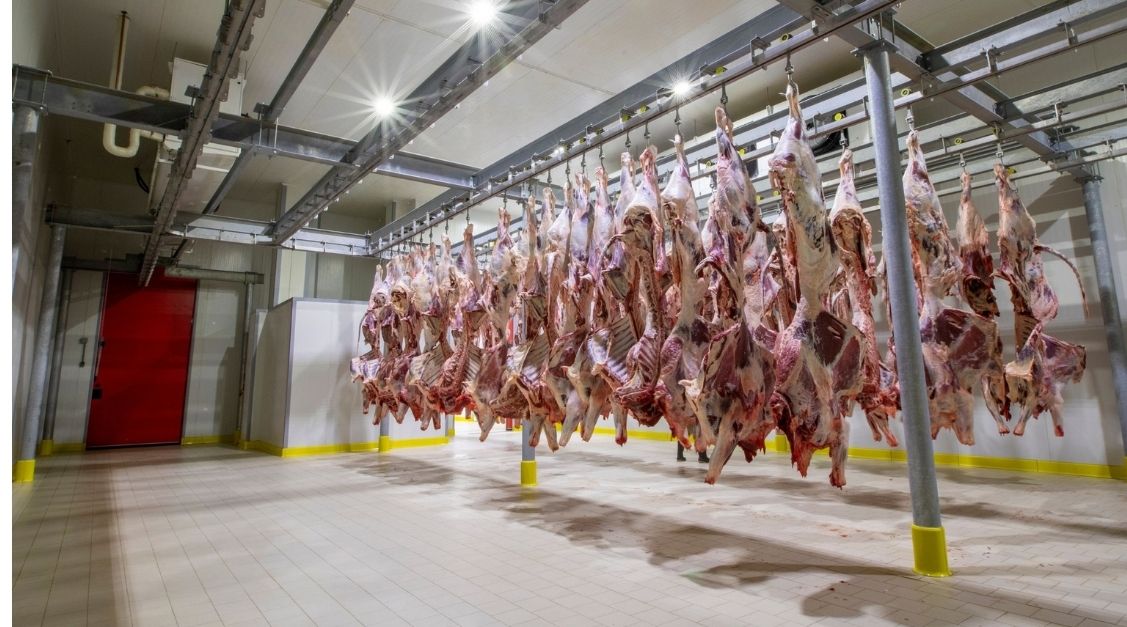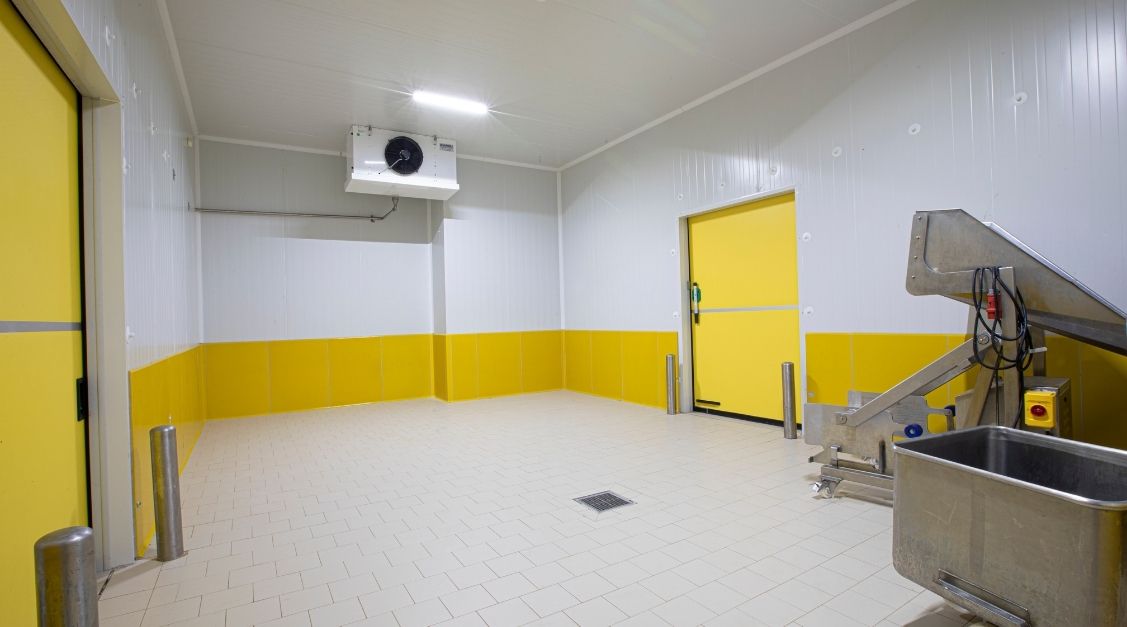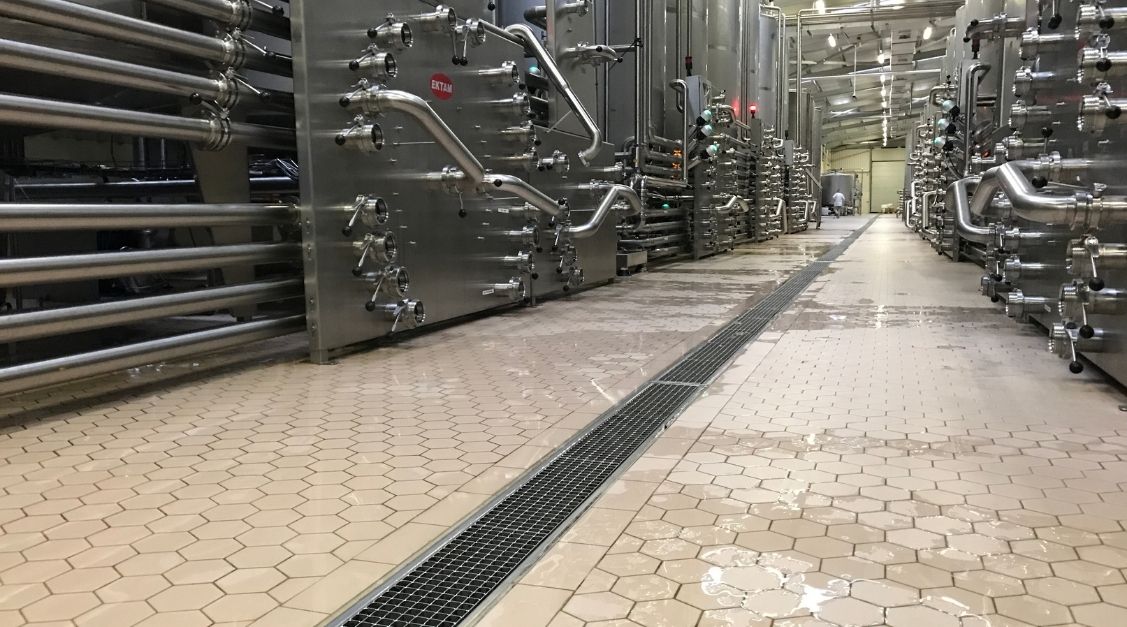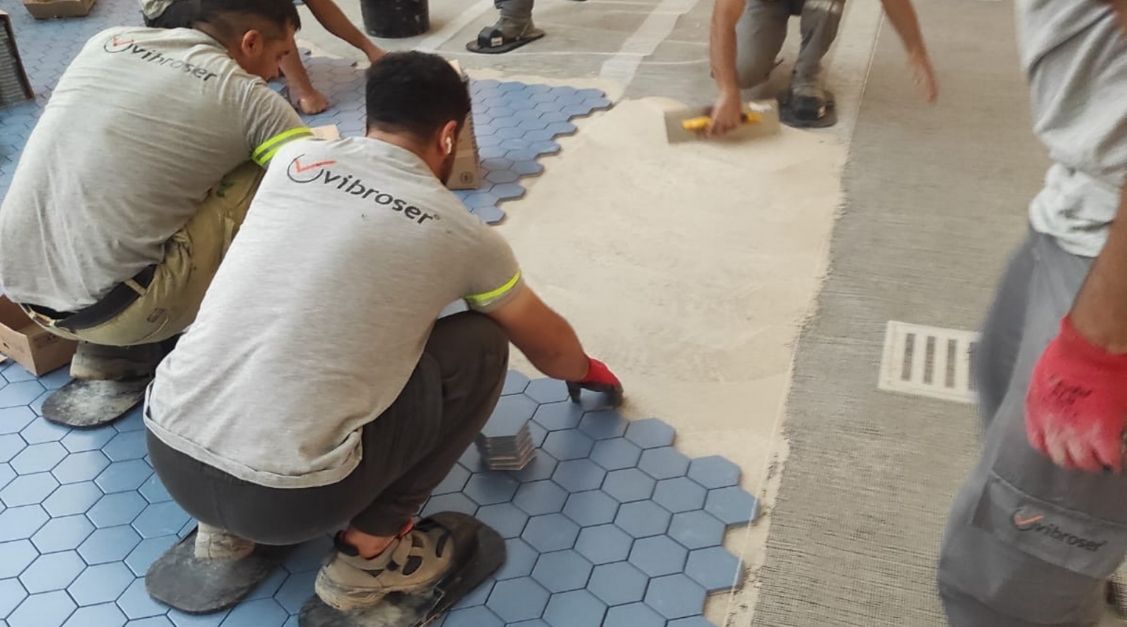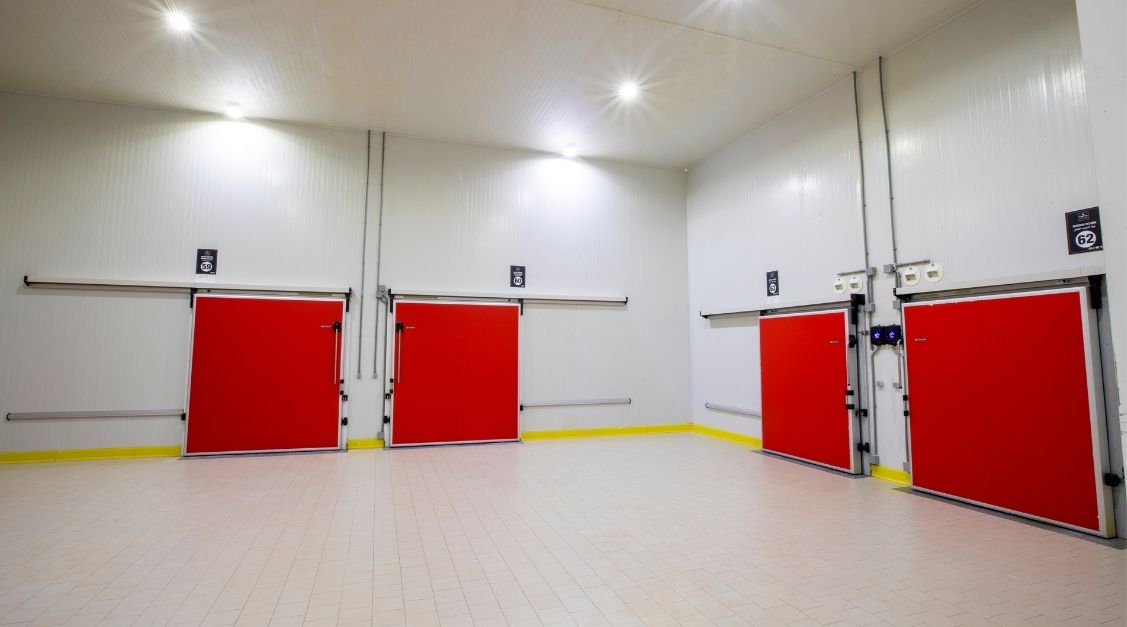In the realm of food sector facilities, including food production plants, beverage factories, dairy factories, meat processing plants, and breweries, the choice of flooring is a pivotal decision that influences not only aesthetics but also functionality and safety. Among the popular options are food grade epoxy flooring and food grade tile flooring, each offering different characteristics.
The world of food and beverage processing demands not just a visually pleasing environment but also one that upholds the highest standards of hygiene and safety. In this context, the choice of flooring material becomes crucial. While food grade epoxy flooring and food grade tile flooring are commonly used, they offer different features that are worth considering.
1. Chemical Composition of Food Grade Epoxy Flooring
In the food industry, selecting the right flooring material is critical, and food grade epoxy flooring, while initially attractive due to its seamless finish, presents several technical challenges for use in food sector environments. The main issue with this type of flooring is its chemical composition; it’s a synthetic material made from a combination of resins and hardeners, leading to a hard, plastic-like surface. While it may seem durable and easy to clean, the chemical nature of epoxy flooring carries potential risks for food processing areas where safety and contamination prevention are crucial.
Key concerns with food grade epoxy flooring include the risk of chemical leaching, which can contaminate food products—this is especially problematic under conditions of heat and constant contact with organic materials, typical in food processing plants. Furthermore, the integrity of the epoxy flooring is susceptible to degradation when exposed to common substances in these environments, such as acids, fats, and some cleaning agents. This degradation can lead to the formation of cracks and crevices, ideal for bacterial growth and additional contamination risks. Additionally, epoxy flooring’s response to temperature changes, like expansion and contraction in areas with significant temperature fluctuations, can result in cracks and peeling, undermining both the hygienic integrity and safety of the flooring.
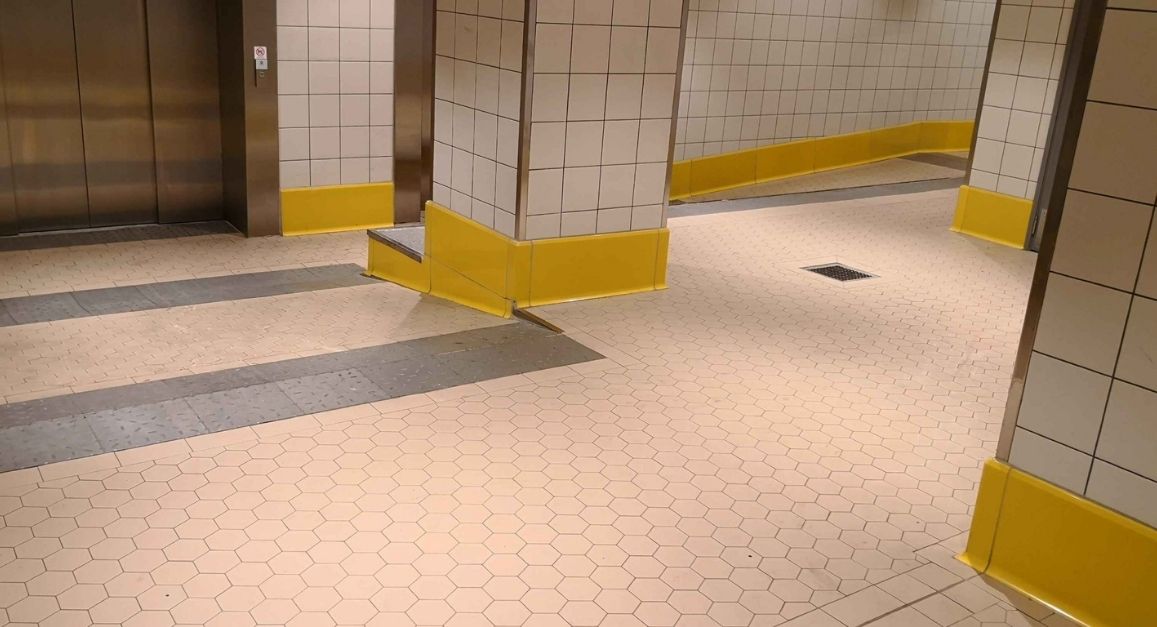
2. Natural Attributes of Food Grade Tile Flooring
Food grade tile flooring, particularly industrial-grade porcelain tiles, is highly valued in the food industry for its combination of safety, durability, and hygiene. Made from natural clay and fired at high temperatures, these tiles create a non-porous and chemically inert surface, ideal for maintaining food safety and cleanliness. Key features include a matte surface that prevents slips and falls, resistance to heavy loads and chemicals like acids and degreasers, and customizable dimensions for a perfect fit in various facilities. The tiles’ ability to withstand extreme tensions and loads, along with their waterproof and stain-resistant nature, contributes significantly to workplace safety, making them indispensable in maintaining a hygienic environment.
These tiles are not only robust and easy to maintain but also offer a non-slip surface, crucial for reducing workplace accidents, especially in wet conditions. Their impeccable attributes make food grade tile flooring, especially porcelain tiles, the optimal choice for the food industry. Their 100% hygienic nature, coupled with exceptional durability and safety features, meets the stringent standards of the food sector. These tiles enhance not only the safety but also the efficiency of operations, standing out as an unparalleled flooring option in food-related environments where cleanliness and safety are top priorities.
3. Durability and Longevity Concerns
In the food industry, the comparison between food grade tile flooring and food grade epoxy flooring reveals significant differences in terms of longevity and wear resistance. Food grade epoxy flooring, although initially robust and resistant to damage, shows a decline in quality over time. This type of flooring is prone to scratches and its glossy finish can diminish with heavy foot traffic and equipment use, making it less ideal for areas with high activity levels. These vulnerabilities can lead to a decrease in both the aesthetic and functional quality of the flooring, highlighting its limitations in sustaining durability and appearance under demanding conditions.
In contrast, food grade tile flooring, particularly porcelain tiles, demonstrates superior durability and resistance to wear. The manufacturing process of these tiles, involving high-temperature firing, results in a dense and hard material less susceptible to damage such as scratches, chips, and abrasions. Porcelain tiles maintain their structural integrity and appearance even in high-traffic environments, making them a more suitable and enduring choice for the food industry. Their stability against environmental factors like temperature fluctuations further enhances their suitability, reducing risks such as cracking and peeling that are more common in epoxy flooring. This makes food grade tile flooring a more reliable and long-lasting solution for demanding industry environments.
4. Maintenance and Repair Considerations
Maintenance and repair of food grade epoxy flooring can be more challenging compared to tile flooring. Epoxy floors, once cracked or chipped, require professional repair to restore their seamless finish. Tiles, on the other hand, can be individually replaced if damaged, offering a simpler and often more cost-effective maintenance solution.
Vibroser’s food grade industrial tiles represent a pinnacle of durability and strength in the construction sector, crafted through a highly specialized manufacturing process. These tiles are subjected to extreme conditions, including being pressed under a massive 4600-ton pressure and fired at 1200 degrees Celsius in industrial kilns. This rigorous production process results in one of the strongest materials available for building, characterized by its exceptional density, homogeneity, and low porosity. The result is a tile that is remarkably resilient to wear and tear, making it an ideal choice for environments demanding high durability, such as food processing facilities.
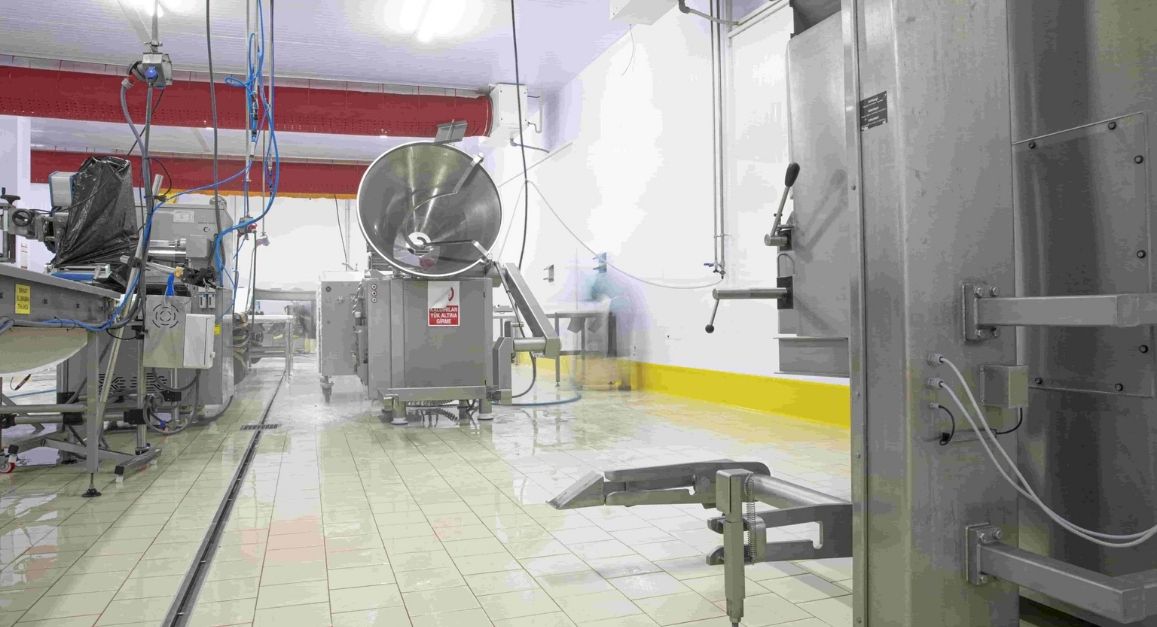
5. Safety and Slip Resistance
Food grade industrial tiles are engineered to meet various safety requirements, including slip resistance, which is critical in ensuring safety in environments like food processing facilities. These tiles can be manufactured to comply with different slip resistance ratings, such as R9, R10, R11, and R12. These ratings are based on the angle of inclination at which a person can walk on the surface without slipping, measured under standard testing conditions.
The R9 rating indicates a tile has the lowest level of slip resistance, suitable for areas where there is less risk of slipping due to wetness or greasiness, like general commercial spaces. R10-rated tiles offer a higher level of slip resistance and are suitable for areas where there is a moderate risk of slipping, such as some parts of food processing areas. As the rating increases to R11 and R12, the slip resistance of the tiles increases correspondingly. R11-rated tiles are designed for areas with higher slip risks, including spaces where oils and other lubricants are present. The highest rating, R12, is reserved for tiles used in environments with very high slip risk, including certain industrial and commercial kitchen areas where there is a constant presence of liquids and greas.
Comparatively, while food grade epoxy flooring might initially offer slip resistance, its texture can decrease over time, increasing the risk of slips and falls. In contrast, food grade tile flooring with textured surfaces can maintain their slip-resistant properties for a much longer period. The durability of these textures in industrial tiles, especially in higher-rated R11 and R12 tiles, ensures a safer environment, even under the most challenging conditions. This longevity of slip resistance is crucial for maintaining consistent safety standards in food processing environments, where the risk of spills and wet surfaces is a constant concern. Therefore, choosing the correct slip resistance rating for industrial tiles is a key consideration for ensuring safety and reducing the risk of accidents in these demanding workplaces.


